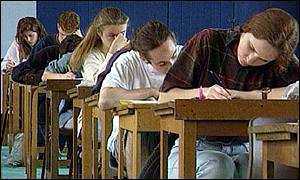Here are some last minute tips on how to succeed in the Scholarship exam.
Make sure that you explicitly aware of examination requirements, especially the requirement to write coherent essays of a minimum of 800 words. Read through your Scholarship Handbook for a fuller explanation. To succeed in the Scholarship exam you need to possess critical and evaluative skills to a high level. Those with facility and skill in using the English language generally perform well; they possess clever and original ways of expressing themselves – often with wit and humour – and show thinking about their texts, about literary theory and reader response. They present their own ideas about the world they live in, its relationship to the past and how the present transcends that past, and how modern media and literary texts can engage / provoke / challenge / enthuse. The best candidates invariably produce legible scripts allowing markers to focus on the response.
According to the 2006 Examiners Report the best performing candidates in Scholarship English most commonly demonstrated the following skills and / or knowledge:
- the ability to write engaging structured essays with strong introductions and conclusions which often left the reader with something to think about
- the ability to use and control the conventions of academic writing to high levels
- the ability to pace their work across the whole paper, dealing well with close analysis in Section A, familiar genre work in Section B, and the demanding reconfiguration of texts to support an integrated topic-driven discussion in Section C
- the ability to make judicious question choices and follow the directions given
- the ability to analyse texts and the ways in which they are crafted
- the ability to “think on their feet”
- the ability to demonstrate critical knowledge and evident enjoyment of a wide range of texts.
In Section A the best candidates demonstrated:
- the ability to deal with both content and crafting in a balanced discussion
- the ability to take on unfamiliar passages with perceptive analysis that illustrates without resorting to paraphrase, and which works towards synthesised appraisals of the writers’ works
- the ability to achieve an overview of both texts through the comparison of general effects and implications for a reader, and in the process to isolate similarities and differences
- an ability to apply their knowledge of techniques in a relevant and productive way to draw out the crafting or ideas of the writers.
In Section B the best candidates demonstrated:
- the ability to balance both general and particular responses to their studied texts
- the ability to extract from questions and quotations the focus of the required argument
- the ability to reconsider, rework, and even re-fresh learned materials and familiar texts in the light of the questions so that materials are brought to support the questions as asked
- the display of considerable knowledge of texts and an ability to draw on references from texts in judicious and succinct ways.
In Section C the best candidates demonstrated:
- the ability to combine breadth and depth in their discussion so that enough detail of the text/s chosen is included to support their understandings, and also to provide evidence of being able to move across texts and genres to make comparisons
- the ability to choose relevant and appropriate texts for reference and discussion
- an understanding of how language works and writer’s purpose
- the ability to argue convincingly.
Candidates who did NOT achieve scholarship lacked some or all of the skills and knowledge above and in addition they:
In general:
- lacked the ability to pace themselves across the whole paper, spending too much time on A and C
- too often failed to respond to the actual topic / question and redirected materials to pre-worked arguments and essays
- did not show breadth and depth in synthesising comments
- did not develop a consistent thesis or evaluative response, choosing instead to “dump information” about their texts in an uncritical response to the question
- failed to demonstrate independent thinking and resorted to description when argument was required
In Section A:
- focused too much on spotting effects and their absence rather than considering the general ideas of both passages
- were not comfortable with unfamiliar texts and resorted to paraphrased commentaries rather than integrated analysis
- were unable to develop and structure a coherent discussion when dealing with reference and close analysis rather than recollected knowledge
- did not compare the two passages, making points uncritically in a linear way, and could provide only literal details from the texts
In Section B:
- pieced together passages of pre-worked materials rather than adapting / responding to the given question
- did not consider the actual wording of the question closely enough
- wrote poorly
In Section C:
- reproduced their “universal / timeless” ideas approach regardless of the actual question asked
- did not keep an argument central, thereby delivering to markers “a pile of bricks with no connecting mortar”.
